Filter by
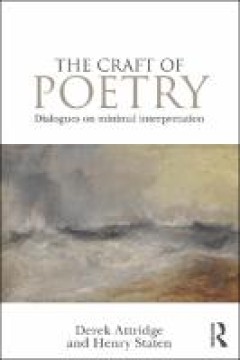
The craft of poetry: dialogues on minimal interpretation
This book presents an innovative format for poetry criticism that its authors call "dialogical poetics." This approach shows that readings of poems, which in academic literary criticism often look like a product of settled knowledge, are in reality a continual negotiation between readers. But Derek Attridge and Henry Staten agree to rein in their own interpretive ingenuity and "minimally interp…
- Edition
- -
- ISBN/ISSN
- 9781315724980
- Collation
- 174 p.
- Series Title
- -
- Call Number
- 808.1 ATT t
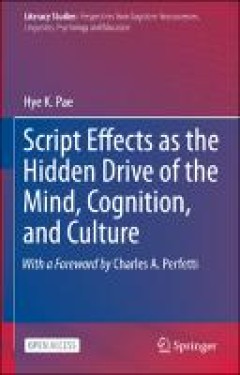
Script effects as the hidden drive of the mind, cognition, and culture
This open access volume reveals the hidden power of the script we read in and how it shapes and drives our minds, ways of thinking, and cultures. Expanding on the Linguistic Relativity Hypothesis (i.e., the idea that language affects the way we think), this volume proposes the “Script Relativity Hypothesis” (i.e., the idea that the script in which we read affects the way we think) by offeri…
- Edition
- Literacy Studies, 21
- ISBN/ISSN
- 9783030551520
- Collation
- 251 p.: ill.
- Series Title
- -
- Call Number
- 411.019 PAE s
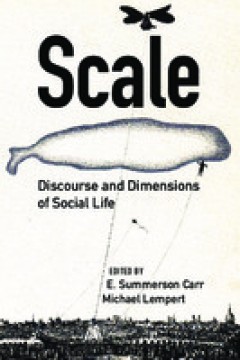
Scale : discourse and dimensions of social life
"Wherever we turn, we see diverse things scaled for us, from cities to economies, from history to love. We know scale by many names and through many familiar antinomies: local and global, micro and macro events. Even the most critical among us often proceed with our analysis as if such scales were the ready-made platforms of social life, rather than asking how, why, and to what effect are scala…
- Edition
- 15
- ISBN/ISSN
- 9780520965430
- Collation
- xi, 277 p. : ill.
- Series Title
- -
- Call Number
- 300.72 LEM s
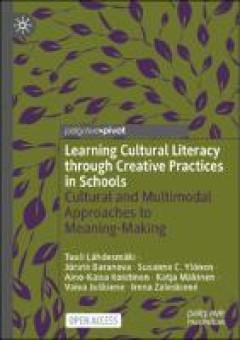
Learning cultural literacy through creative practices in schools : cultural a…
This open access book discusses how cultural literacy can be taught and learned through creative practices. It approaches cultural literacy as a dialogic social process based on learning and gaining knowledge through emphatic, tolerant, and inclusive interaction. The book focuses on meaning-making in children and young people’s visual and multimodal artefacts created by students aged 5–15 a…
- Edition
- -
- ISBN/ISSN
- 9783030892364
- Collation
- xxi, 151 p. : ill.
- Series Title
- -
- Call Number
- 306.071 LAH l
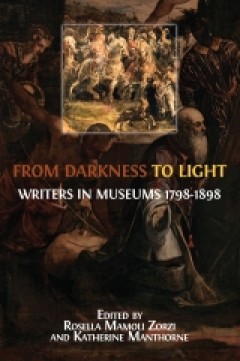
From darkness to light: writers in museums 1798-1898
Written by an array of international experts, these collected essays gather perspectives from a diverse range of cultural sensibilities. From sensitive discussions of Tintoretto’s unique approach to the play of light and darkness as exhibited in the Scuola Grande di San Rocco in Venice, to the development of museum lighting as part of Japanese artistic self-fashioning, via the story of an epi…
- Edition
- -
- ISBN/ISSN
- 9781783745517
- Collation
- xviii, 371 p. : ill. : ind. ; 24 cm
- Series Title
- -
- Call Number
- 729.28 FRO f
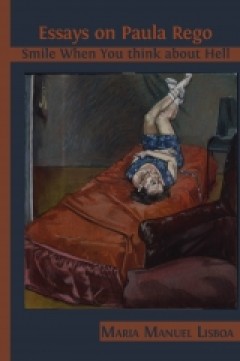
Essays on Paula Rego: smile when you think about hell
In these powerful and stylishly written essays, Maria Manuel Lisboa dissects the work of Paula Rego, the Portuguese-born artist considered one of the greatest artists of modern times. Focusing primarily on Rego’s work since the 1980s, Lisboa explores the complex relationships between violence and nurturing, power and impotence, politics and the family that run through Rego’s art. Taking …
- Edition
- -
- ISBN/ISSN
- 9781783747580
- Collation
- xv, 492 p. : ill. : ind. ; 24 cm
- Series Title
- -
- Call Number
- 759.421 LIS e
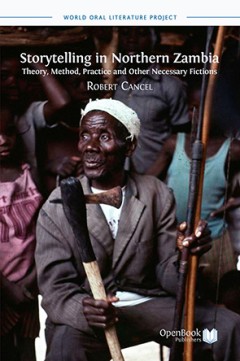
Storytelling in Northern Zambia: theory, method, practice and other necessary…
Storytelling plays an important part in the vibrant cultural life of Zambia and in many other communities across Africa. This innovative book provides a collection and analysis of oral narrative traditions as practiced by five Bemba-speaking ethnic groups in Zambia. The integration of newly digitalised audio and video recordings into the text enables the reader to encounter the storytellers the…
- Edition
- -
- ISBN/ISSN
- 9781909254619
- Collation
- xviii, 274 p. : ill. : ind. ; 24 cm
- Series Title
- -
- Call Number
- 808.543 CAN s
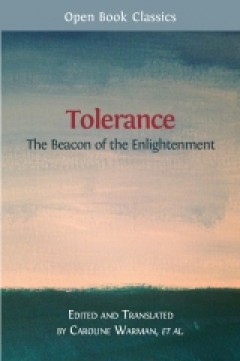
Tolerance : the beacon of the enlightenment
This is a century of political and cultural imperialism, of wars about borders and control of resources, of world-wide trade and profit based on worldwide exploitation. It is also a century of revolution, and of fierce debate about rights and laws, about the right to follow a religion or to reject it, about policing and its limits. It is a century of violence, and it provokes violent reactions.…
- Edition
- -
- ISBN/ISSN
- 9781783742073
- Collation
- 130 p.
- Series Title
- -
- Call Number
- 944.034.
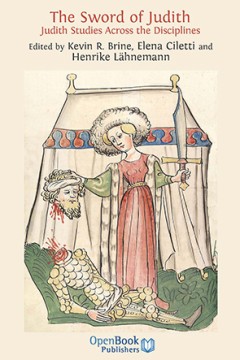
The sword of Judith : Judith studies across the disciplines
These essays, by presenting translations of unpublished manuscripts, analyzing new archival sources, and exploring Judith’s representation in narrative, poetry, art, music and theatre, demonstrate how Judith serves as a template for marking changing views of politics, ethics, gender roles and theology from the Patristic period to the nineteenth century. — Amy-Jill Levine, Nashim: A Journal…
- Edition
- -
- ISBN/ISSN
- 9781906924171
- Collation
- xviii, 511p.: ill.
- Series Title
- -
- Call Number
- 809.93351 THE k
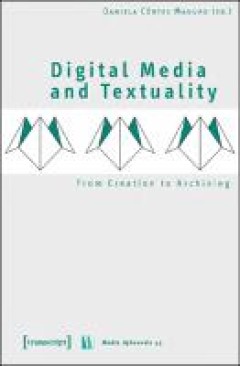
Digital media and textuality: from creation to archiving
Due to computers' ability to combine different semiotic modes, texts are no longer exclusively comprised of static images and mute words. How have digital media changed the way we write and read? What methods of textual and data analysis have emerged? How do we rescue digital artifacts from obsolescence? And how can digital media be used or taught inside classrooms? These and other questions ar…
- Edition
- -
- ISBN/ISSN
- 9783839440919
- Collation
- 284 p. : ill.
- Series Title
- -
- Call Number
- 006.7 MAD d
 Computer Science, Information & General Works
Computer Science, Information & General Works  Philosophy & Psychology
Philosophy & Psychology  Religion
Religion  Social Sciences
Social Sciences  Language
Language  Pure Science
Pure Science  Applied Sciences
Applied Sciences  Art & Recreation
Art & Recreation  Literature
Literature  History & Geography
History & Geography